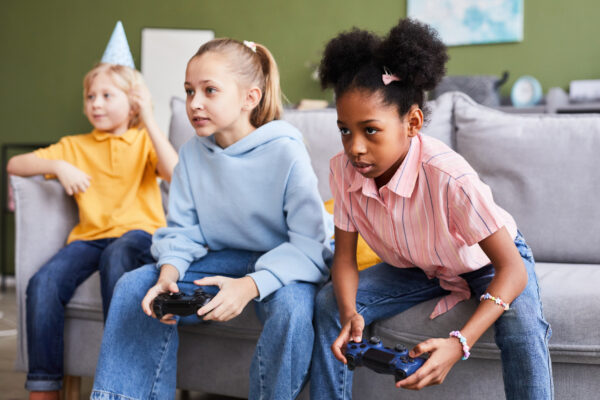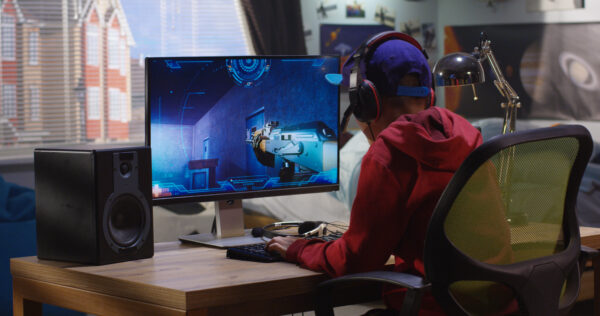
Studies show video games have a positive effect on children including better performance on cognitive skills tests involving impulse control and working memory compared to children who have never played video games.
Chances are your kids play video games, or someday they will. You may worry about the time they spend with a controller in hand and wonder if these games are bad for them.
“It’s not as simple as it’s good or it’s bad,” said child psychiatrist Dr. Sumru Bilge-Johnson of the Division of Pediatric Psychiatry and Psychology at Akron Children’s. “There are a lot of complexities, depending on the age of the child and the type of games. Both the content and how much they play is very important.”
A 2022 study published in the Journal of the American Medical Association found that video games have a positive effect on children including better performance on cognitive skills tests involving impulse control and working memory compared to children who have never played video games.
“Games like Minecraft can benefit kids in several ways. Through these brain games they learn problem solving, strategizing, flexibility and also social skills,” said Dr. Bilge-Johnson.
Some games can help improve hand-eye coordination, and active games get kids moving. Physical activity-oriented games aren’t just good for the body – movement also benefits the brain and helps reduce stress and anxiety.

If kids play video games for hours and don’t engage in any normal social interactions with their peers this can negatively impact their social development and ability to manage real relationships.
“Also, if the content is pro-social – helping or doing something good (Mario Brothers) – we know that has a positive effect on the brain structure,” said Dr. Bilge-Johnson.
On the other hand, if kids play for hours and don’t engage in any normal social interactions with their peers this can negatively impact their social development and ability to manage real relationships.
Studies show playing video games can contribute to poor sleep and impact attention, academic performance, mood, and wellbeing. Exposure to violent video games can contribute to aggressive behaviors in kids. Playing video games for long periods of time has also been linked with developing obesity.
“Socially, kids learn together, experience together, share ideas and solutions, and communicate about how to deal with things differently,” said Dr. Bilge-Johnson. “It’s important to balance social time with peers with time for video games.”
If your child’s gaming is having negative effects, it may be time to enforce some limits. Dr. Bilge-Johnson recommends limiting video games to 1 hour a day during the week and up to 2 hours on weekends.
“You should establish limits for kids, both in time spent gaming and the content,” Dr. Bilge-Johnson said.
She also suggested that for some parents, playing video games with your kids could be a way to connect with them.
“Parents should know what their kids are playing, and who they’re playing with. Parents can play, too. It’s a chance for you to have conversations and to think together. It can be a bonding time,” she said.










